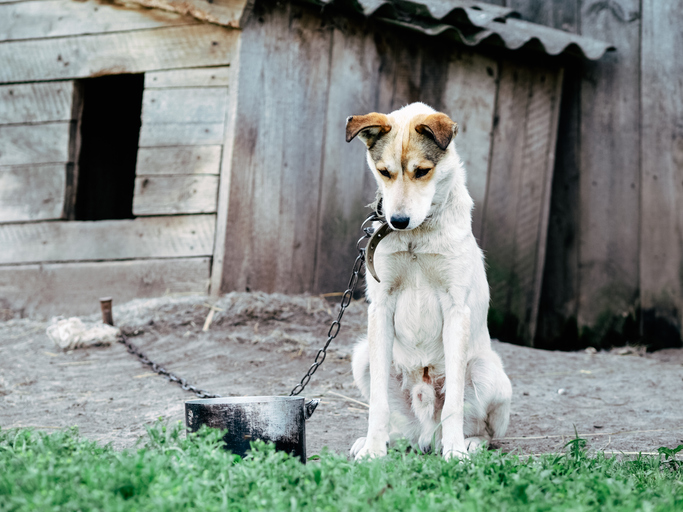The role of an animal cruelty officer is integral in Pennsylvania, a state that harbors a rich array of wildlife and domestic animals, yet grapples with a troubling incidence of animal neglect and abuse. Becoming an animal cruelty officer requires a combination of education, training, and a fervent dedication to animal welfare. This profession involves a diverse array of responsibilities, ranging from investigation and enforcement of animal welfare laws to public education and advocacy.
To embark on this career path, it is essential to comprehend the foundational requirements, which can be categorized into educational qualifications, necessary certifications, practical experiences, and personal characteristics that are pivotal in this line of work.
Educational Qualifications
A degree in a related field can provide a significant advantage for aspiring animal cruelty officers. Most entities prefer candidates equipped with a bachelor’s degree in criminal justice, animal science, or a similar discipline. Such academic backgrounds instill knowledge surrounding animal care, law enforcement techniques, and the psychological aspects of animal behavior.
Moreover, coursework in criminology and ethics can enhance an applicant’s understanding of the moral and ethical dimensions of animal treatment, providing them with a holistic perspective necessary for this role.
Necessary Certifications
Beyond formal education, specific certifications are indispensable for animal cruelty officers in Pennsylvania. The Pennsylvania Animal Cruelty Law mandates that individuals must complete training programs that encompass a thorough overview of animal welfare laws and investigation techniques.
Certification as an animal cruelty officer is usually conferred by the Pennsylvania SPCA (Society for the Prevention of Cruelty to Animals) or a similar accrediting body. This process involves rigorous training sessions that cover legal frameworks, emotional intelligence, evidence collection, and various investigative methods tailored for animal cruelty cases.
Practical Experience
Real-world experience is equally crucial in shaping a competent animal cruelty officer. Prospective candidates are encouraged to seek internships or volunteer opportunities with animal shelters, rescue organizations, or law enforcement agencies. Such experiences provide invaluable insights into the everyday challenges and rewards of the role, alongside fostering critical skills such as communication, crisis management, and empathy.
Additionally, mentoring under seasoned officers can significantly enhance one’s understanding of the intricacies involved in conducting cruelty investigations. Engaging in community outreach programs can also offer insights into public perceptions and myths related to animal welfare, a strategy that is essential for effective advocacy.
Personal Characteristics
The emotional landscape of an animal cruelty officer’s duties can be profound. Therefore, certain personal attributes are vital for success in this field. Resilience is paramount, as officers often encounter harrowing situations involving neglect and abuse. The ability to maintain composure under such stress is imperative for making sound judgments and providing necessary care to animals.
Compassion is another cornerstone trait for individuals in this role. A deep-seated empathy for animals serves as a motivating force, propelling officers to advocate ferociously for those who cannot advocate for themselves. Strong communication skills are equally important; conveying sensitive information effectively to pet owners and the community can influence positive changes in attitudes towards animal welfare.
Key Responsibilities
The responsibilities of an animal cruelty officer extend far beyond investigations. Officers typically handle a variety of tasks, which include:
- Conducting Investigations: Officers must meticulously gather evidence related to cases of suspected animal cruelty. This involves interviewing witnesses, collecting photographic evidence, and compiling reports that accurately document findings.
- Enforcing Animal Welfare Laws: The enforcement of laws is a primary duty. Officers are charged with ensuring compliance with state and local animal welfare regulations, which may involve issuing citations or initiating legal proceedings against offenders.
- Public Education: An important aspect of their role encompasses education initiatives. Officers may host workshops or engage in community outreach efforts to raise awareness about responsible pet ownership and the signs of animal abuse.
- Collaboration: Collaboration with other law enforcement agencies, veterinarians, and animal welfare organizations is vital. Such partnerships strengthen the network of support available to animals in distress.
Job Outlook and Opportunities
The demand for animal cruelty officers is likely to see growth in the coming years. As public awareness surrounding animal welfare continues to expand, so too does the need for knowledgeable and dedicated professionals in this field. Opportunities may arise within local law enforcement, non-governmental organizations, and animal rescue groups.
In conclusion, becoming an animal cruelty officer in Pennsylvania requires a harmonious blend of education, practical experience, and a profound commitment to animal welfare. As advocates for the voiceless, these officers have the important responsibility of ensuring the humane treatment of animals. Their work not only contributes to the enforcement of laws but also fosters a culture of compassion and respect toward all living beings.








